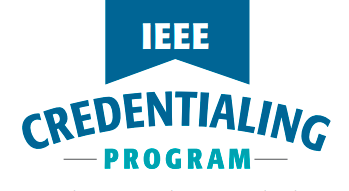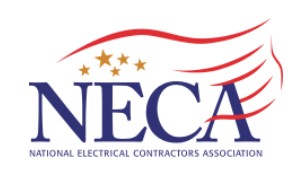CEUs for Electrical Training
Electrical Training Continuing Education
Do you need to complete continuing education hours for a state electrical license?
All of the states have very different CEU requirements. They vary in terms of the number of hours you need to complete, which courses qualify, how many credits are given and whether instructors need separate approval. In some states, no continuing education is needed at all.
There are also different methods of assigning credit. Many boards require us, as the course provider, to verify your attendance, and others simply require that you receive a certificate of completion.
Below you will find links to the web pages at each state’s electrical licensing board that answer these questions.
State Electrical Boards
- California
(for contractors) - California
(no state CEU requirement) - Colorado*
- Connecticut
- Delaware*
- Georgia
- Hawaii
- Idaho*
- Illinois
(no state licensing requirement; check local area) - Indiana
(no state licensing requirement for electricians; check local area) - Iowa
- Kansas
(no state licensing for electricians; check local area) - Kentucky*
- Louisiana*
(for residential building contractors) - Maine
- Maryland*
- Massachusetts*
- Michigan*
- Mississippi
- Missouri
(no state licensing for electricians; check local area)
- Montana*
- Nebraska*
- Nevada
(no state CEU requirement) - New Hampshire
- New Jersey*
- New Mexico*
- New York
(no state licensing for electricians; check local area) - North Carolina*
- North Dakota*
- Ohio*
(Construction Industry Licensing Board) - Ohio*
(Board of Building Standards) - Oklahoma
- Oregon*
- Pennsylvania
(no state licensing for electricians; check local area) - Rhode Island
- South Carolina
(no state CEU requirement) - South Dakota*
- Tennessee
(no state CEU requirement) - Texas
- Utah*
- Virginia
- Washington*
- West Virginia
(no state CEU requirements) - Wisconsin*
- Wyoming*
* States that have one or more e-Hazard courses approved for continuing education credit. For information about e-Hazard courses’ eligibility for credit, please see the Continuing Education Credits heading on the training page for the type of course you need (e.g., Low Voltage, High Voltage, NEC, etc.)
Engineering Continuing Education
The majority of state engineering boards do not pre-approve continuing education courses. Usually the CE process is self-directed, meaning that the student chooses an education activity, records it on a form provided by the board, retains the certificate of completion and submits it when (or if) the board requests it.
Some states do pre-approve courses; for example, Indiana and Maryland have approved e-Hazard courses for professional development hours for engineers.
CEUs are now available from IEEE for all e-Hazard courses.
Our normal certificates of completion are still valid for the organizations which accept them, but the new IEEE certificates are useful for more organizations: they will be accepted for CEUs or PDHs by all state engineering boards.
When registering for a class, just indicate that you would like an IEEE certificate in addition to your e-Hazard certificate of completion. The cost to the student is $25 per certificate, the amount that e-Hazard is charged by IEEE.
Please note, however, that many state engineering boards will accept direct contact hours from e-Hazard and that will continue to be available at no additional charge. Check with your certifying body and choose the IEEE certificate if you need one. If you have specific questions about your own eligibility, please contact us.
A list of the states and links to their engineering boards follows:
Professional Association Continuing Education
There are many organizations which license or certify electricians and engineers. Some which accept e-Hazard courses for their continuing education requirements include International Code Council, BICSI, NETA, and the NFPA CESCP certification. For many organizations, the course does not need to be pre-approved, but can be submitted for continuing education hours after completion.
Contact your certifying body’s administrator to find out what education is accepted and how to receive credit.
Do You Need Electrical Safety Training?
Join thousands of happy customers who have gone through our training.






